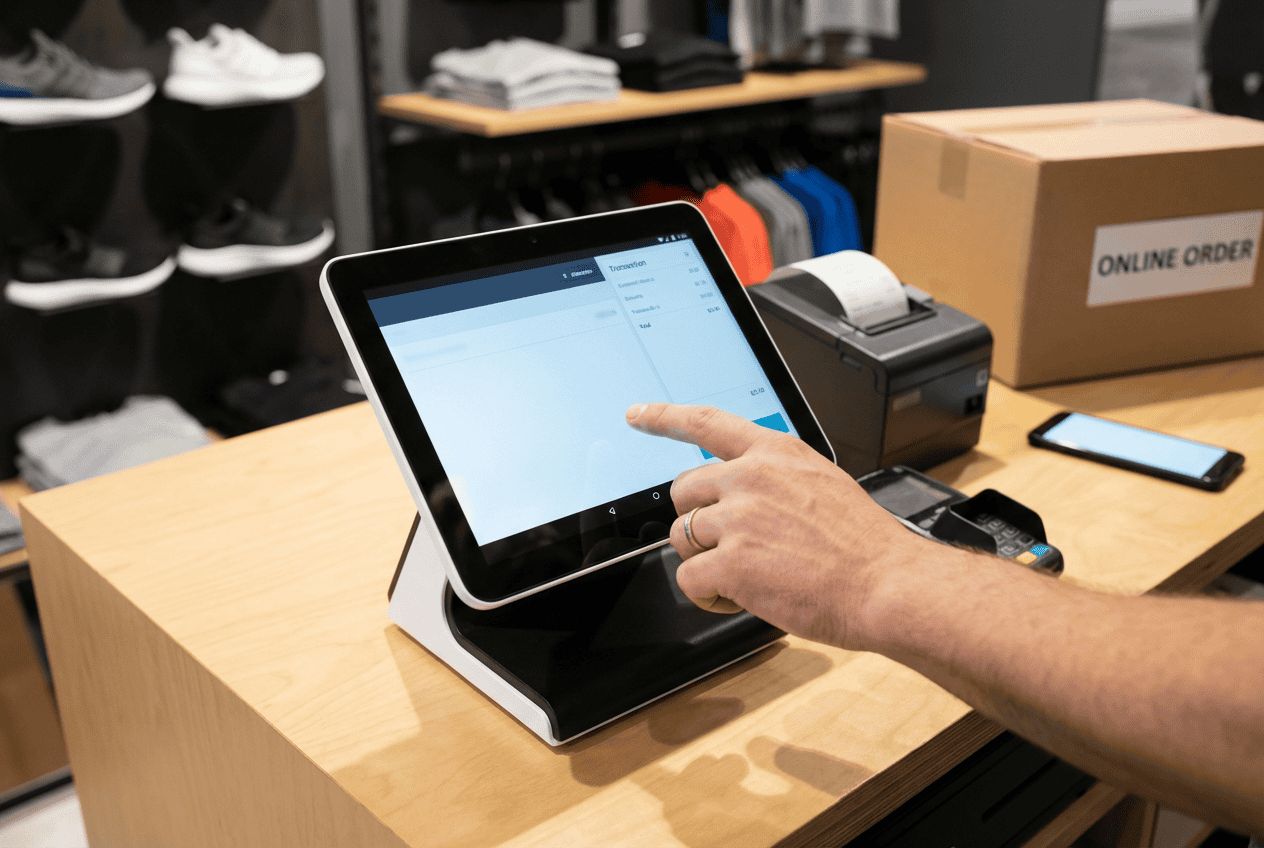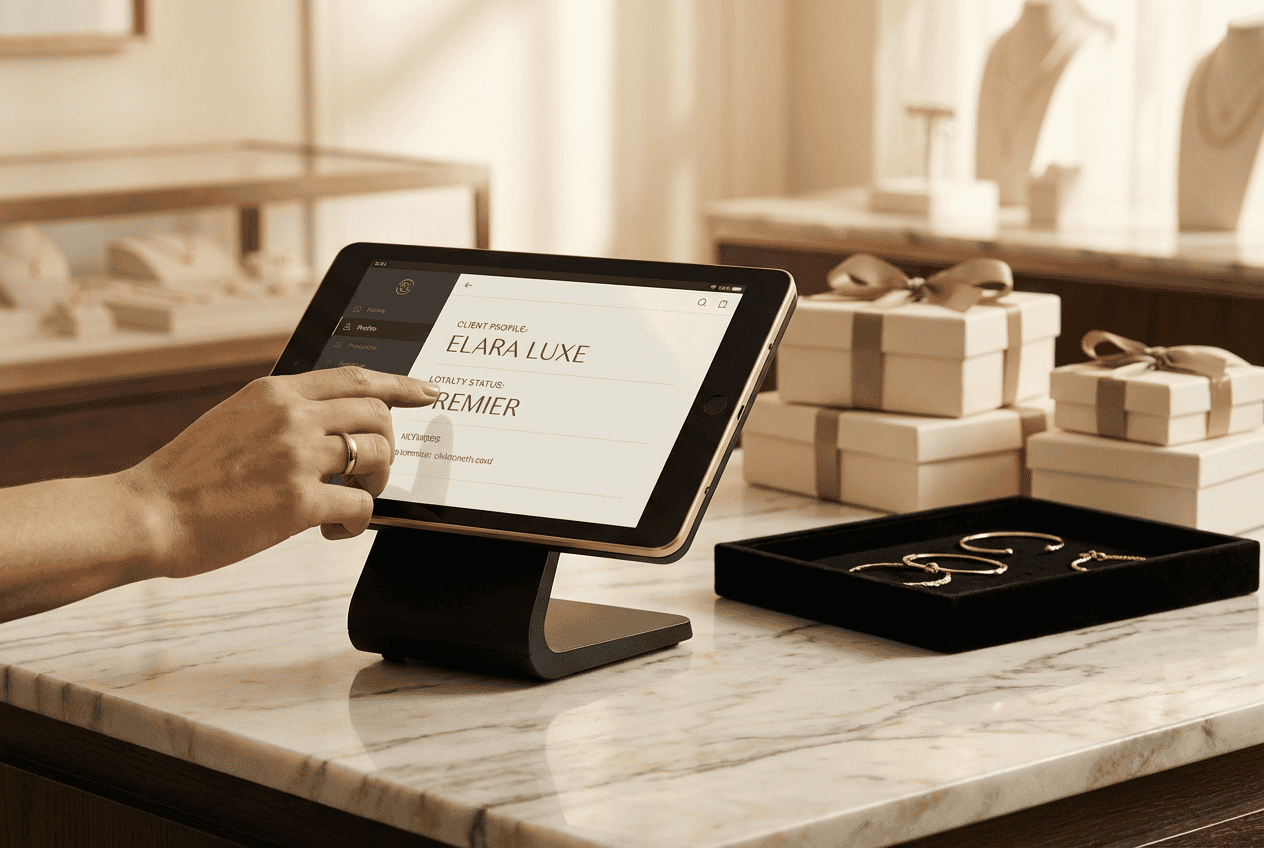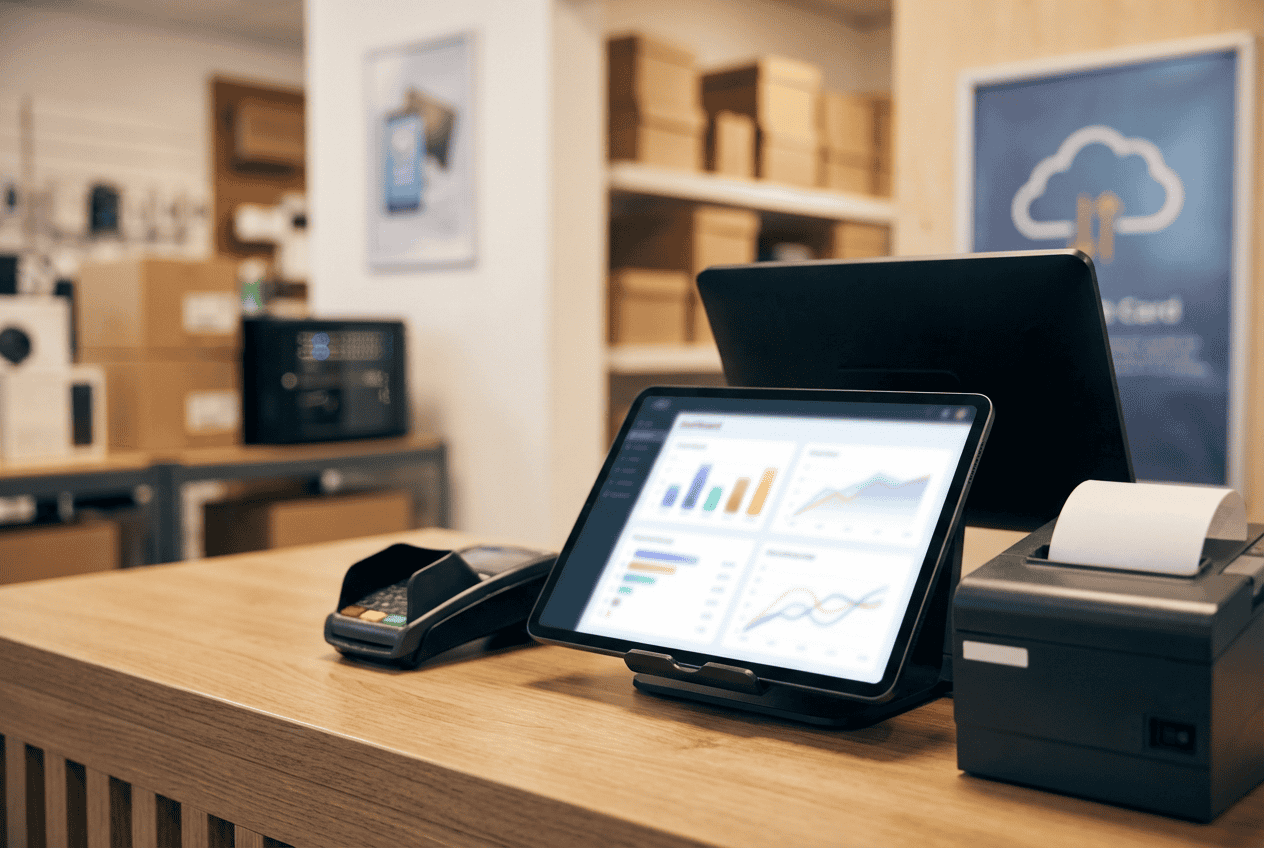Retailers in Malaysia rely on Point of Sale (POS) systems to streamline transactions, inventory management, and customer interactions. A well-integrated POS system can enhance operational efficiency, improve customer experience, and boost sales performance.
With competition heating up and margins under pressure, Malaysian retailers are no longer asking if they need a modern POS system; they’re asking which one fits best. This guide explores the 5 best POS systems Malaysia, highlighting their key features, benefits, and ideal use cases to help you make an informed decision for your business. Whether you operate a small retail shop, restaurant, or large-scale enterprise, the right POS system can redefine your business success.
What is POS Systems Malaysia?
A POS System Malaysia is a digital hardware and software system used by businesses in Malaysia to process sales transactions, manage inventory, track customer data, and streamline operations. More than just a digital cash register, modern POS systems in Malaysia help businesses with real-time sales reporting, stock management, customer loyalty programs, and can integrate online and offline sales channels. They provide essential tools for efficient business operations across various sectors, including retail, F&B, and beauty services.
Malaysian Retail Landscape in 2026
Market Trends and Forecasts
The Malaysian retail market is expected to grow steadily, reaching USD 119.64 billion by 2029, with a projected compound annual growth rate (CAGR) of 5.94% (Source: Modor Intelligence, 2024). This growth is driven by urbanization, an expanding middle class, and higher disposable incomes, which are reshaping consumer habits.
In 2026, many retailers are focusing on digital transformation and adopting omnichannel approaches to meet rising consumer expectations. Shoppers increasingly demand personalized experiences, whether in-store or online, and businesses are responding by integrating advanced retail technologies, such as POS systems, to stay competitive.
Consumer Behavior Shifts
Malaysian shoppers are prioritizing convenience, personalization, and accessibility. E-commerce and mobile commerce are continuing to grow. According to a January 2023 survey conducted in Malaysia by Statista, approximately 24.77 percent of respondents stated they made online purchases at least once a month. Shoppers now expect seamless experiences that allow them to switch between online and in-store shopping effortlessly.
Moreover, the demand for premium and niche products is on the rise. Retailers are increasingly tailoring their offerings to meet specific consumer needs, from loyalty programs to omni-shopping options like click-and-collect. Businesses that successfully leverage these trends are set to thrive in the evolving retail landscape.
Role of POS Systems in Malaysian Retail
- Streamlining Operations
POS systems reduce the time spent on repetitive tasks like manual stock checks or re-entering sales data. With real-time updates, retailers can avoid delays and focus more on planning, team coordination, or product strategy.
►►► Optimal solution set for businesses: Multi store POS, Next-gen POS, Inventory Management Software (MSI), Self Service, Automation, Backorders

- Improving Customer Experience
A fast, reliable checkout process builds customer satisfaction. POS systems help reduce wait times and give staff the tools to recommend the right products or apply discounts based on past purchases—all of which lead to stronger loyalty.
- Smarter Business Decisions
With built-in reporting tools, business owners can spot trends, identify slow-moving stock, and plan promotions based on actual performance. These insights support retailers in responding quickly to changes and making more confident decisions.
- Staff Performance and Access Control
Businesses can easily monitor staff performance with a POS, from tracking individual sales to managing shift schedules. Managers can set permission levels, reducing the risk of errors or unauthorized changes, while keeping accountability clear.
- Unified Sales Across Channels
When a customer shops in-store, online, or through marketplaces like Shopee or Lazada, integrated POS systems ensure that stock levels and order records remain consistent. This prevents overselling, supports faster order fulfillment, and provides retailers with a comprehensive view of their performance across all sales channels. of their performance across all sales channels.
How to Choose the Right POS System Malaysia for Your Business Type?
Not every POS system fits every business. The tools you need depend on what you sell, how you serve customers, and how your operations are structured. Picking the right system starts with understanding the features that match your daily workflow.
For Food and Beverage Businesses
Restaurants, cafes, and food stalls need more than just a cash register. A good POS should support table ordering, kitchen printing, and menu adjustments on the fly. It should also make it easy to manage combos, modifiers, and special requests without slowing down service.
For Retail Stores
Fashion shops, gadget retailers, and specialty stores benefit from features like barcode scanning, variant tracking (such as sizes or colors), and simple return handling. A reliable system keeps stock accurate and checkout queues short, even during sales rushes.
For Service-Based Businesses
Salons, clinics, and repair shops need a system that goes beyond product sales. Look for tools that manage appointments, store client notes, and track service history. This helps build a more personalized experience and keeps your team organized.
For Growing Brands
If you’re expanding or already managing multiple store locations, choose a system that supports more than one outlet. You’ll want a multi store POS (such as ConnectPOS) with shared access to reports, inventory transfers across locations, and the ability to view performance across all branches from a single dashboard.
Top 5 Best POS Systems in Malaysia to Elevate Your Retail Business
In this section, we’ll examine five reputable POS options for businesses in Malaysia: ConnectPOS, StoreHub, Xilnex, Slurp, and Lightspeed. Each offering has unique features tailored to different business needs.
With the rise of cashless payments and omnichannel retail, businesses now need POS systems that go beyond basic transactions. The ability to sync online and offline sales, support local payment methods, and generate insightful reports can make a significant difference in daily operations. Let’s take a closer look at how these five systems compare.
1. ConnectPOS
ConnectPOS is a cloud-based solution that seamlessly bridges online and offline operations. It’s particularly suited to Malaysian retailers looking to modernize their businesses and meet the demands of a growing digital-first customer base.
- Multi-Platform Integration: Works with Shopify, WooCommerce, Magento, and BigCommerce, ensuring smooth operations across sales channels.
- Tailored for Local Markets: ConnectPOS offers specific features for businesses such as vape shops, convenience stores, and event-based retail. For instance, vape retailers can track regulated products, while convenience stores can benefit from tools to manage both online and in-store inventory.
- Mobile POS and Progressive Web App (PWA): These tools allow businesses to process payments and manage sales on the go. Perfect for event-based businesses or pop-up stores, they enable flexible and efficient operations.
- Loyalty Programs: Helps retailers develop and manage customer loyalty initiatives, making it easier to reward repeat customers and improve retention.
- Real-Time Synchronization: Tracks inventory and sales data across multiple stores and channels, reducing stock-related issues and improving accuracy.
- Offline Mode: Keeps the system functional even during internet outages, ensuring uninterrupted service.
- Comprehensive Reporting: Offers detailed analytics on sales, staff performance, and inventory, helping businesses make better decisions.
For those who want to try before they buy, the software offers a 14-day trial. So, if you’re planning to take your retail business omnichannel, the ConnectPOS cloud pos system could be your best option.

2. StoreHub
StoreHub has grown significantly, focusing on the Asian market with over 15,000 trusted customers. Its simple and clear user interface makes it accessible for beginners. StoreHub is notable for its remote management tools, including employee management, promotions, and attendance tracking.
- Remote Management: Allows easy management of staff, promotions, and attendance from any location.
- Sync with eCommerce: Integrates with eCommerce platforms, supporting seamless online and offline operations.
- Loyalty Programs: Encourage repeat purchases and boost customer retention through loyalty initiatives.
- Powerful Customer Database: Builds a robust customer database quickly and efficiently.
- User-Friendly Interface: Ensures ease of use for beginners with a straightforward design.
3. Xilnex
Xilnex POS is an omnichannel cloud-based system designed for retail and food and beverage businesses in Southeast Asia.
- Omnichannel Support: Caters to both physical and online sales, including click-and-collect functionality.
- Inventory Management: Tracks inventory in real-time, preventing stockouts and optimizing stock levels.
- Customer Management: Manages customer information and loyalty programs.
- Table Management (for F&B): Manages table reservations and orders, specific to restaurants.
- QR Code Ordering: Allows customers to place orders directly from their phones using QR codes.
- Multiple Layouts: Offers different POS interface layouts for various setups.
- AI Insights: Provides AI-powered insights for analyzing sales data and customer behavior.
4. Slurp
Slurp is a comprehensive POS system tailored specifically for the food and beverage (F&B) industry in Malaysia. It addresses sector-specific needs, making it an ideal choice for F&B retailers.
- Customizable Options: Allows businesses to tailor the system to their specific requirements.
- Inventory Management: Offers powerful tools for managing ingredients and stock levels in real-time.
- Budget Analysis: Enables businesses to analyze budgets, track sales, and monitor cash flow.
- Reporting Capabilities: Provides insights into performance, trends, and data-driven decision-making.
- Portable POS: Comes with an iPad version for flexible order taking and payment processing within the store.
5. LightSpeed
LightSpeed is known for its advanced inventory management and user-friendly interface, making it ideal for grocery stores. It also offers features aimed at enhancing the overall customer experience.
- Intuitive Interface: Simplifies daily operations with an easy-to-navigate design.
- Excellent Support: Offers a dedicated support team for assistance.
- Wide Integration: Compatible with various third-party applications, allowing for customization.
- Scalability: Suitable for both small shops and large chains.
- Advanced Reporting: Provides comprehensive reports on sales, inventory, and employee performance.
- Customizable Dashboard: Allows businesses to tailor their dashboard to display key metrics.
- Promotional Tools: Manages promotions, discounts, and special offers effectively.
Features to Look for in a POS System in Malaysia
Your POS affects how smoothly your business runs day to day. When selecting a system in Malaysia, focus on features that align with both your operational needs and local requirements.
- Real-Time Inventory Tracking: The system should update stock levels automatically as items are sold, returned, or transferred. This avoids overselling and helps you plan restocks based on actual movement, not guesswork.
- Local Payment Support: Malaysia’s shoppers expect a wide range of payment options. Look for systems that accept DuitNow QR, GrabPay, Touch ‘n Go eWallet, and bank card payments, without extra setup steps.
- SST Compatibility: Compliance with Malaysian tax rules is non-negotiable. A good POS should apply SST correctly, generate tax reports, and handle rounding according to local currency rules.
- Offline Capability: Internet issues shouldn’t bring your business to a halt. Choose a system that keeps core functions running even when the connection drops, and syncs data automatically once it’s back online.
- Multilingual Interface: Malaysia is multilingual, and your POS should be too. Systems that support Bahasa Malaysia, English, or Mandarin make it easier for staff to adapt and reduce training time.
- Centralized Reporting: Whether you run one outlet or several, having access to a single dashboard with sales, inventory, and customer data makes it easier to spot trends, manage teams, and track progress.
- Integration with Other Tools: Your POS should work well with other platforms, like your eCommerce store, accounting software, or delivery apps. This saves time and helps keep all parts of the business connected.
FAQs: POS Systems Malaysia
- Do I need a POS system if I’m running a small store in Malaysia?
Yes, even small businesses benefit from a POS system. It helps you keep track of sales, manage stock more accurately, and reduce manual work. Many systems now offer flexible plans that suit smaller retailers without a big upfront investment. - Is it important for a POS system in Malaysia to support local payments?
Absolutely. Shoppers in Malaysia regularly use DuitNow QR, eWallets like GrabPay and Touch ’n Go, and contactless cards. A system that accepts these options helps you serve customers faster and avoid turning away sales. - Can a POS system work if my store has unstable internet?
Yes, some POS systems come with offline support. This means you can still process sales during a connection drop, and the system will sync automatically when the internet returns. Just make sure this feature is included before committing. - How do I know which POS system fits my business best?
Start by listing what you need, like inventory tracking, payment types, or multi-store management. Then compare systems based on those features. If you’re not sure, many providers offer free trials or demos so you can test before deciding.
Wrapping Up
Choosing the right POS system helps retailers in Malaysia manage daily operations, improve accuracy, and serve customers more efficiently. Each solution in this list supports different business types and includes tools that fit local payment habits, inventory needs, and sales processes. For example, ConnectPOS supports both online and in-store sales, real-time inventory tracking, and tools like mobile checkout and loyalty programs.
Before making a decision to go with a POS system Malaysia, review your business requirements, compare available features, and test the systems through demos or trials.. If you are interested in ConnectPOS, don’t hesitate to talk to us for more details!
►►► Optimal solution set for businesses: Shopify POS, Magento POS, BigCommerce POS, WooCommerce POS, NetSuite POS, E-Commerce POS




